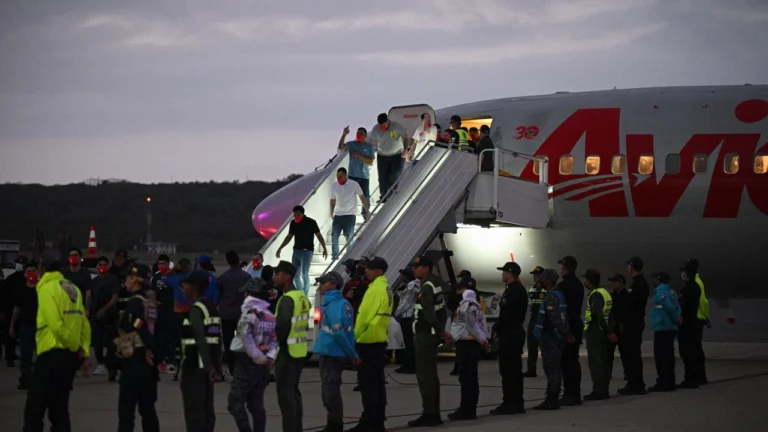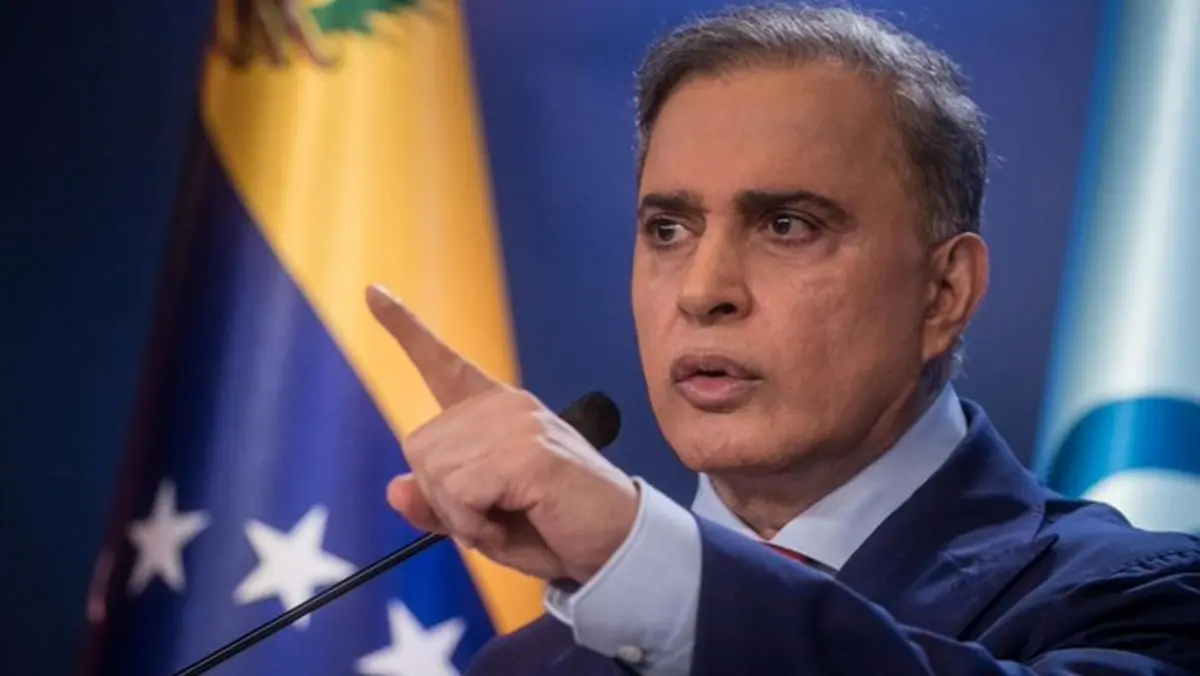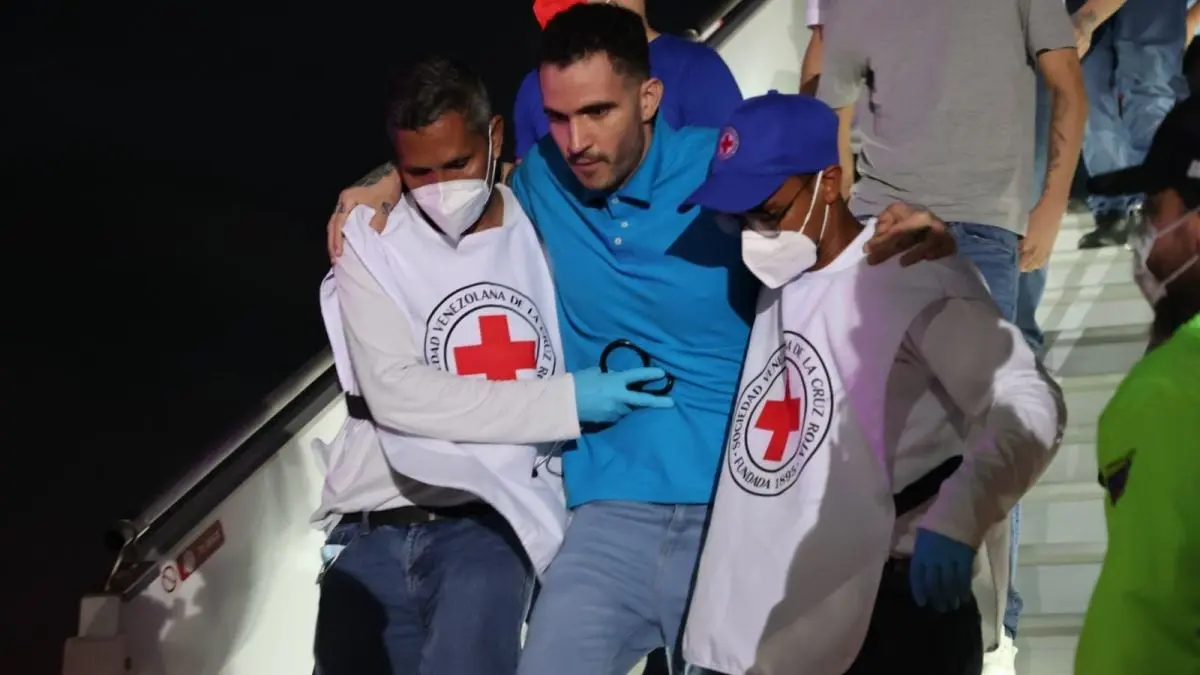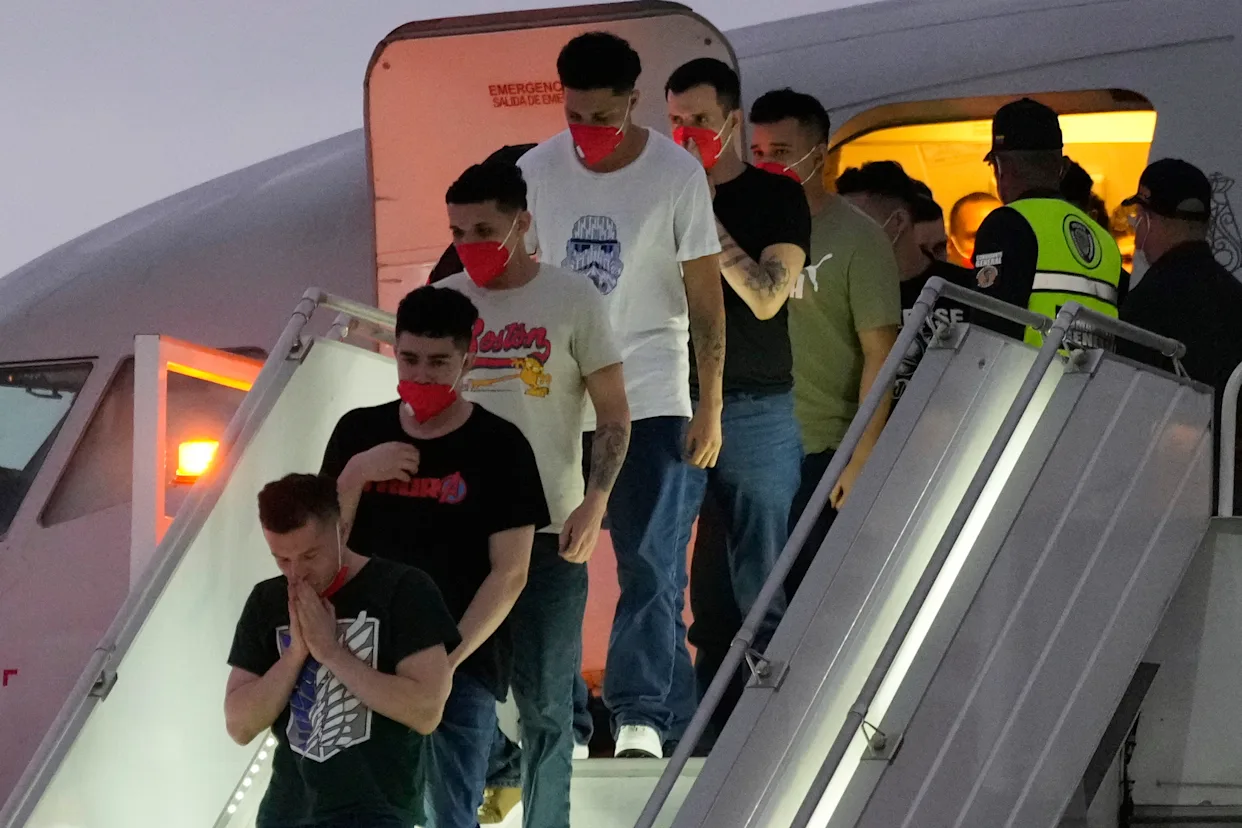From CECOT to Venezuela: The Controversial Repatriation of Venezuelan Migrants and Its Challenges

July 22, 2025 Hour: 11:02 am
Venezuela’s recent history has been marked by an unprecedented migratory exodus, fueled by a deep economic, political, and social crisis.
Millions of Venezuelans have left in search of hope beyond their borders, risking dangerous routes and uncertain futures.
In this context, a recent episode has captured headlines and raised alarms in the international community: the detention and subsequent repatriation of over 250 Venezuelans at the Terrorism Confinement Center (CECOT) in El Salvador.
This event, the result of international migration agreements, reveals the difficult circumstances migrants face and the role governments play in their ultimate fate.
CECOT in El Salvador: Between Security and International Criticism
Located in Tecoluca, El Salvador, CECOT (the Terrorism Confinement Center) is a mega-prison housing thousands of alleged gang members, primarily from MS-13 and Barrio 18.
The government of Nayib Bukele has promoted it as a key tool in the fight against organized crime under the State of Exception declared in March 2022 and extended multiple times. The official narrative claims that only “the worst criminals” are sent there.
However, human rights organizations and legal experts have repeatedly denounced inhumane conditions: overcrowded cells, absolute isolation, lack of access to legal defense, no family visits, and restricted information.
Additionally, cases of torture, mistreatment, and systematic deprivation have been documented, making CECOT one of the main international human rights concerns.
El Salvador’s security policy has led to the detention of over 70,000 people, many of them civilians with no proven gang ties, selected based on “profile” or social appearance.
This practice has been widely condemned by organizations like Human Rights Watch and Amnesty International, which point to systematic violations of due process.
Venezuelan Migration: Causes, Routes, and Challenges
Venezuela’s socioeconomic situation, worsened by international sanctions, hyperinflation, and high prices for food, medicine, and services, has forsed more than 7 million citizens to leave. Their main destinations: South America, Central America, and the United States.
One of the most dangerous migratory routes is the Darién Gap, between Colombia and Panama, fraught with natural hazards, violence, and armed gangs.
From there, migrants cross through Panama, Costa Rica, Nicaragua, Honduras, Guatemala, and Mexico. Passing through El Salvador, though not mandatory, can be a less dangerous route, if they manage to evade strict migration controls.
Those who continue through El Salvador and Guatemala usually travel by air or land, facing constant threats of detention, deportation, and police violence.
Various reports indicate that many Venezuelans are detained on their way to the U.S. simply for lacking documentation or being suspected of ties to organized crime, despite most cases lacking concrete evidence.
Tren de Aragua and the Hardening of Migration Policies
A factor that worsened the situation was the growing international perception of the Venezuelan criminal group “Tren de Aragua.”
Designated by the U.S. as a transnational criminal organization and linked to crimes across the continent, its mere mention has led to stricter migration measures.
Under the “Safe Third Country Agreement” policy, the U.S. government sent over 200 Venezuelans, accused without conclusive evidence of belonging to or being linked to Tren de Aragua, directly to CECOT.
This decision was part of the U.S. strategy to deter irregular migration and shift asylum and judicial processing responsibilities to transit countries like El Salvador or Mexico, a policy heavily debated by human rights groups.
Arrival at CECOT: A Media and Political Drama
Images of Venezuelan migrants in handcuffs, wearing white uniforms, with shaved heads, and escorted by masked CECOT agents caused global shock.
These men and women, who had never set foot in El Salvador nor had family ties there, were left in complete legal defenselessness.
Venezuela called the action a “kidnapping” and denounced forced disappearances, as well as blatant human rights violations endorsed by the U.S. and Salvadoran governments.
Families, both in Venezuela and abroad, sought information through all possible means, supported by the Venezuelan government and organizations like UNHCR and IOM.
They called for international intervention as reports grew of cruel treatment, torture, daily beatings, and sexual abuse by Salvadoran prison staff.
Negotiations and Diplomatic Exchange: The Repatriation
Following international pressure and public outcry, trilateral negotiations began between Venezuela, the U.S., and El Salvador.
The efforts included mediation by international political figures and culminated in an agreement to release the 252 detained Venezuelans.
As part of the exchange, the Venezuelan government freed 10 Americans and several opposition figures linked to internal destabilization attempts.
The returnees were welcomed back to Venezuela on July 18 under the “Return to the Homeland Mission,” a program created to repatriate citizens in vulnerable situations.
The Venezuelan government, led by the Interior Minister and high-ranking officials, assisted in their reintegration process.
Thorough medical check-ups were conducted, and information was gathered about the abuses suffered at CECOT.
Minister Diosdado Cabello stated that only seven of the repatriated had serious criminal records, the rest were innocent.
Psychological and Social Impact of the CECOT Experience
According to statements from returnees and investigations by Venezuela’s Public Ministry, the experience at CECOT left deep physical and psychological scars: injuries, acute stress, depression, suicidal ideation, and intense fear of future criminalization.
Venezuelan Attorney General Tarek William Saab reported 123 formal complaints of torture, unlawful detention, degrading treatment, and sexual abuse, with judicial proceedings to be opened against Salvadoran officials.
Reintegration and Challenges Upon Return
Returning to Venezuela is far from simple. While the government provides immediate healthcare and promotes socioeconomic reintegration programs, conditions in Venezuela remain challenging.
The “Return to the Homeland Plan,” in addition to repatriation, includes an initial $10 million fund for productive projects and temporary subsidies, though its reach is still limited.
International organizations like UNHCR and IOM provide guidance and travel kits, but the scale of the humanitarian challenge requires broader, more inclusive coordination.
International Scrutiny and Future Demands
The CECOT case and the repatriated Venezuelan migrants have placed El Salvador and the U.S. under scrutiny for their responsibility in protecting the human rights of vulnerable migrants.
Various organizations have called for independent investigations and a thorough review of detention and deportation procedures along the Central American migration route.
Many experts agree that the automatic criminalization of migrants based on mere suspicion or nationality violates international treaties and fuels discrimination, persecution, and the erosion of asylum as an essential human right.
Conclusion
The case of Venezuelans sent to CECOT highlights the profound ethical, legal, and humanitarian challenges in regional migration management.
Agreements between countries that involve transfers and confinement without due process not only violate fundamental rights but also worsen the existing humanitarian crisis, leaving deep personal and familial trauma.
The migrants’ experience at CECOT, marked by violations of human dignity, must serve as a wake-up call to place people at the center of any migration response.
It is imperative that the international community, governments, and organizations ensure respect for migrants’ rights, provide safe and legal entry pathways, and guarantee individualized case assessments to prevent thousands from becoming collateral victims of politically or security-driven migration policies.
Only a humanitarian and inclusive approach can build lasting solutions to Venezuela’s complex migration crisis and the emerging challenges along Latin America’s transit routes.






